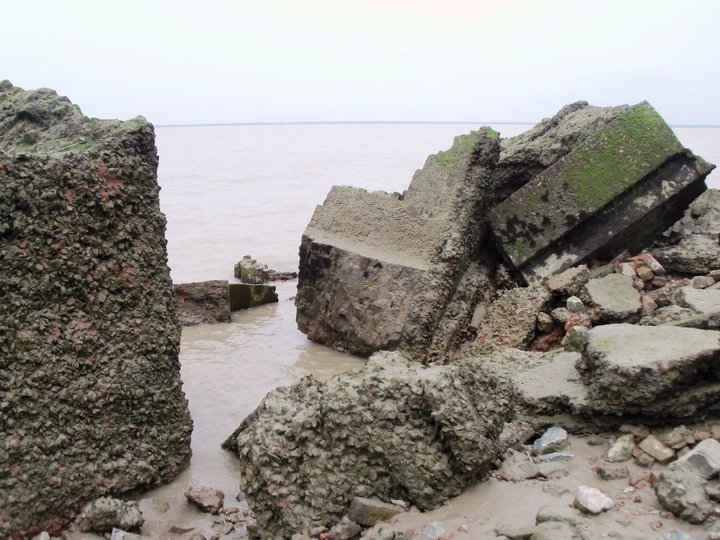Mubarak Mandi Palace
Mubarak Mandi Palace is an enchanting ensemble of Rajasthani, Mughal and Gothic architectural styles. The Sheesh Mahal, which at present houses Dogra Art Museum, is well worth a closer look.
Mubarak Mandi Palace is an enchanting ensemble of Rajasthani, Mughal and Gothic architectural styles. The Sheesh Mahal, which at present houses Dogra Art Museum, is well worth a closer look.
Bhanu Pishi House is the ancestral home of Bhanu-pishi, the childhood companion of Saradadevi. Bhanu Pishi was extremely fortunate to have the blessings of Sri Ramakrishna and Saradadevi. It is believed that the Holy Mother Saradadevi spent many days in this house to have mental peace and solitude. Bhanu Pishi left this home after her marriage but returned to this home after the death of her husband. This is located near to Matrimandira in Jairambati. The present structure is a renovated one.
It is not often that a certain landmark becomes the very identity of the entire city. The Howrah Bridge or the Rabindra Setu, also termed as the gateway of Kolkata, is one such structure which due to its grandeur and majestic appeal has been the face of Kolkata for over a century. Constructed on the river Hoogly, the bridge connects the city to the Howrah district and effectively the Eastern part of the country.
This steel structure is 705m long and boasts of 8 lanes collectively 97m wide. Reportedly over one lakh different vehicles and 2 million commuters traverse the bridge to either direction every day. The ships and boats often enter the Kolkata harbor after traveling under the bridge. Recently it has been illuminated and is a sight to behold during evenings.
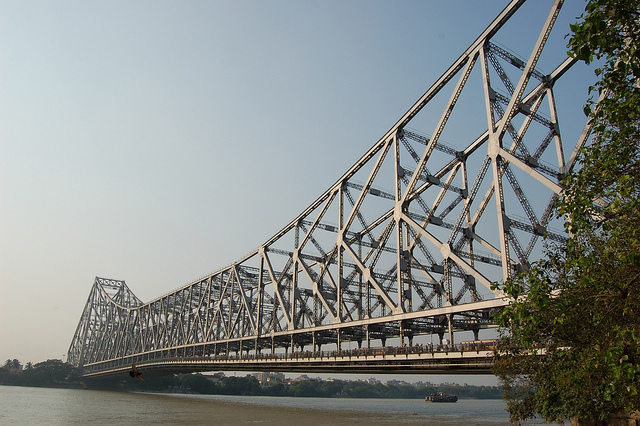
The most famous and ancient palace is the Tamluk Palace, which is known to have withstood 2500 years of turmoil and history. It was built in the 5th century B.C by the Mayuradha dynasty. It is in ruins but still impressive.
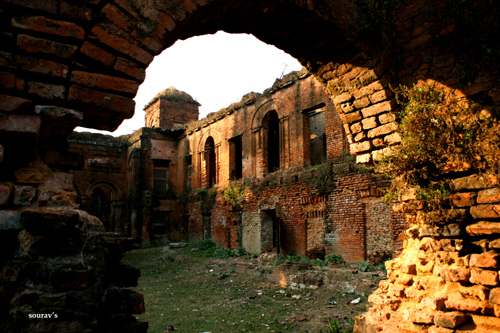
Eklakhi Mausoleum is the most elegant monument in Pandua, with a carved Ganesh on the doorway. It is a tomb of the son of a Hindu Raja, who converted to Islam. Eklakhi mausoleum is a remarkable structure in Pandua, featuring a carved ganesh on the doorway. This monument belongs to the son of a Hindu Raja, who was converted to Islam.
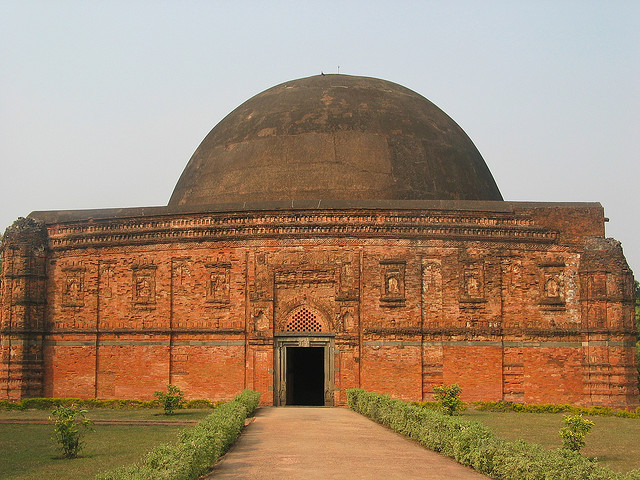
Located to the south-east of the Kadam Rasul Mosque, this is a place where the sultans played hide and seek with the begums. There is a difference of opinion as to who built this gate, some say that Shah Shuja built it in 1655, others opine that it was built by Allauddin Hussein Shah in 1522. The innovative architectural style makes it an interesting place to visit.
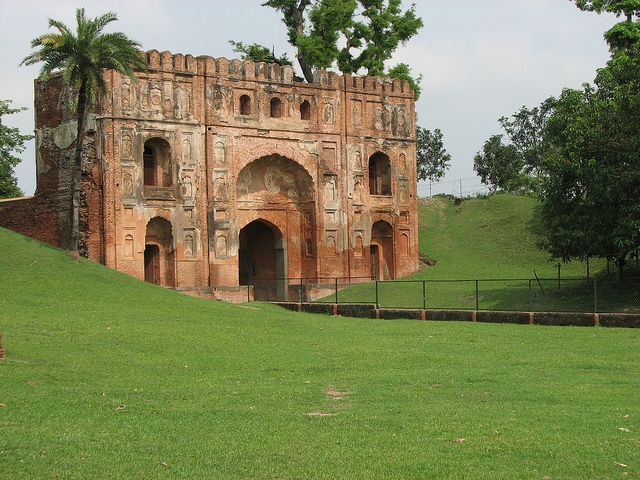
Half a kilometre from the Feroze Minar, this mosque was built by Sultan Nasiruddin Nusrat Shah in 1530. It contains the footprints of Hazrat Muhammad on stone.
http://www.flickr.com/photos/john_leverton/5204189496/in/photostream
http://www.flickr.com/photos/john_leverton/5203582851/in/photostream
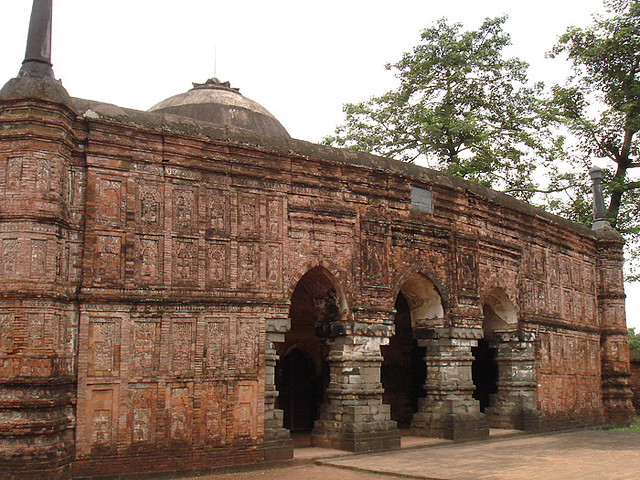
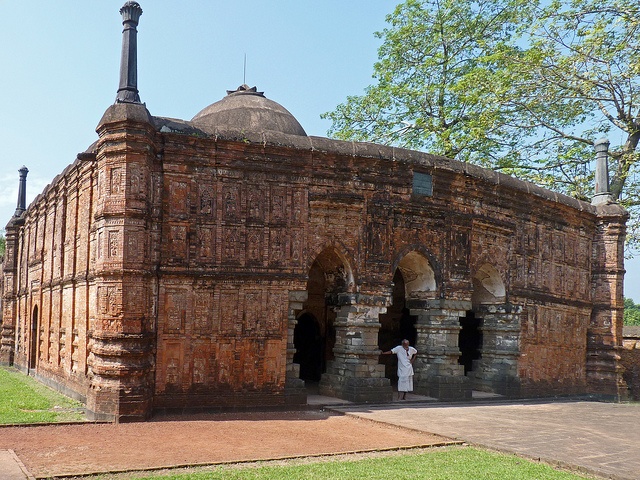
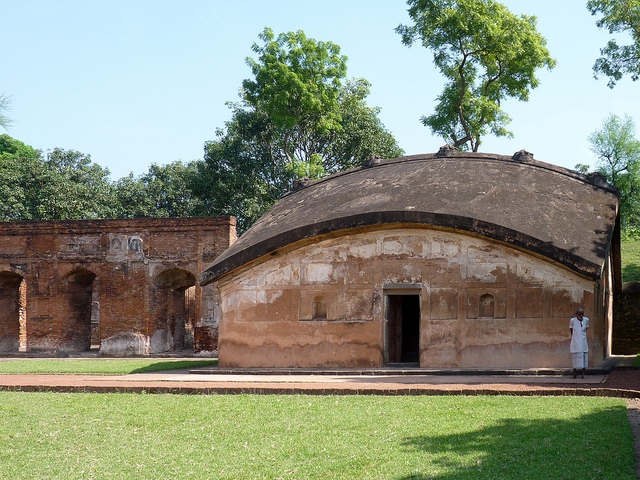
Built in 1425 and also known as Salami Darwaza it was once the main entry for the fort. It is more than 21 metres high and 34.5 metres wide.
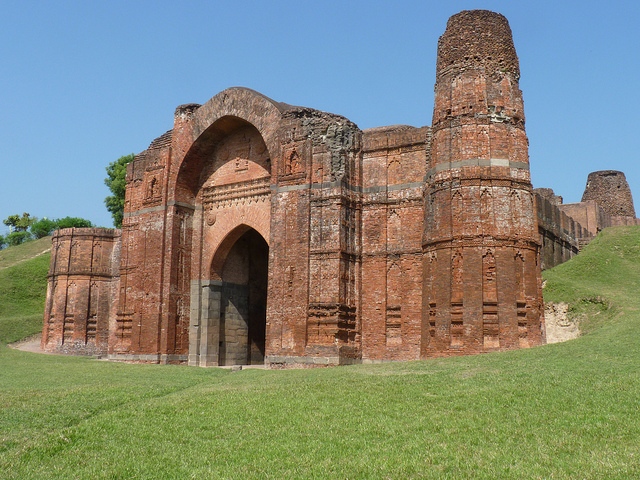

Garh Jungle is also called Dharma Garh of Raja Surath and is quite and adventurous place. The place is supposed to be one of oldest places of ancient India.
Presently, Durga Puja is piously done every day here after the rediscovery of this place by Jogiraj Brahmananda Giri, after spending 12 years in deep jungle, of the Dasnami cult. This commemorates the ancient practice of Durga puja at the same temple constructed by Raja Surath. Thousands of devotees across the world visit the place at the special season Durga Puja.
Ruins of the old fort at Diamond Harbour is a must visit spot for every tourists visiting Diamond Harbour. The fort was most probably built by the Portugese or French traders in 16th Century and was mainly used as Warehouse to store merchandise before loading on the ships to Europe. Though presently the fort is in ruin but is undoubtedly a major attraction for tourists.
The Diamond harbour Fort was built sometimes in 16th Century on the bank of the Holy River Ganges, most probably by the Portuguese or by the French as it was gateway to the Village Calcutta( Then), and the capital of Bengal Murshidabad. They came as traders, were allowed to settle or build forts at many places on the banks of the Ganges as it was the main route via Bay of Bengal.
